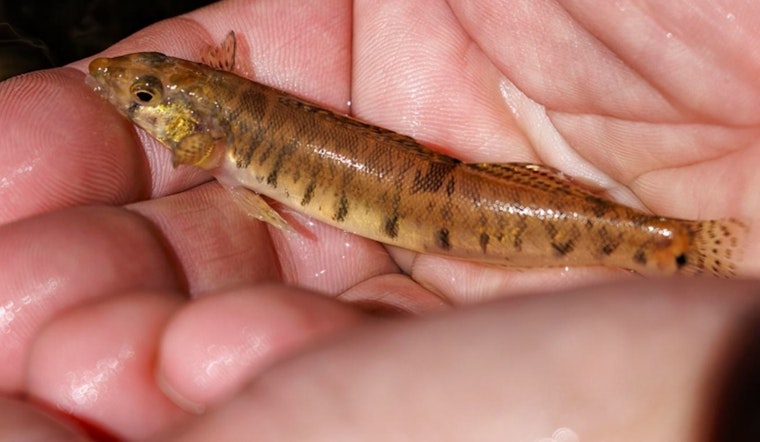At Mayo River State Park, the Division of Parks and Recreation and the North Carolina Wildlife Resources Commission (NCWRC) are working together to reestablish the endangered Roanoke logperch. The North Carolina Department of Natural and Cultural Resources announced the release of fingerling logperch, a species native to North Carolina and Virginia that has been listed as nationally endangered since 1989.
Building on an agreement with the U.S. Fish and Wildlife Service (USFWS) from 2022, a deal reached in October allowed NCWRC and USFWS access to conserve important aquatic species, such as the Roanoke logperch, throughout 18 miles of the state park’s ecosystem. In a collaborative endeavor with the Piedmont Land Conservancy, the logperch was initially brought back to these waterways last year upstream of the Washington Mill dam. However, the species’ decline was first influenced by dam construction and problems with water quality.
Announcing the partnership, NCWRC Assistant Chief of Inland Fisheries Rachael Hoch said, “The N.C. Wildlife Resources Commission is excited to partner with the N.C. Division of Parks and Recreation to reintroduce the Roanoke logperch.” As noted by the North Carolina Department of Natural and Cultural Resources, she attributed the USFWS permit to facilitating collaborations with non-federal property stakeholders.
State Parks Deputy Director of Operations Kathy Capps praised the North Carolina Department of Natural and Cultural Resources for facilitating this conservation collaboration, highlighting the excellent wildlife habitat of the Mayo River and the state parks’ function as wildlife preserves. “The Dan River Basin is one of the most diverse places in the state for aquatic species,” said TR Russ, Foothills Aquatic Wildlife Diversity Coordinator, who backed the reintroduction. The North Carolina Department of Natural and Cultural Resources noted the advantages of the species’ return, especially above the Avalon Dam.
With a lifespan of roughly 6.5 years and the moniker “king of the darters,” the resurgence of the Roanoke logperch is an example of how human stewardship and natural history may coexist peacefully. This was highlighted by Jimmy Dodson, State Parks Natural Regional Biologist Manager: “Parks are primarily home to North Carolina’s flora and fauna, even though most people think of them as recreational areas. According to the North Carolina Department of Natural and Cultural Resources, “We would like to remind our guests that this species is protected and should not be collected without the proper authorizations.”
Note: Every piece of content is rigorously reviewed by our team of experienced writers and editors to ensure its accuracy. Our writers use credible sources and adhere to strict fact-checking protocols to verify all claims and data before publication. If an error is identified, we promptly correct it and strive for transparency in all updates, feel free to reach out to us via email. We appreciate your trust and support!



Leave a Reply